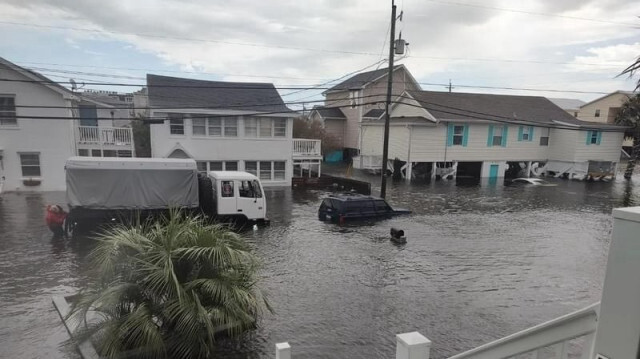
A recent study indicates climate change enhances conditions for powerful hurricanes like Helene
A study published on Wednesday reveals that Hurricane Helene, which devastated parts of the southeastern US in late September, was significantly intensified by climate change.
The research conducted by World Weather Attribution (WWA) found that human-induced global warming increased the hurricane's rainfall by approximately 10% and raised its likelihood of occurrence by 40-70%, depending on the timeframe analyzed.
"Climate change is enhancing conditions conducive to the most powerful hurricanes like Helene, with more intense rainfall totals and wind speeds," the researchers noted in their findings.
The study indicated that Hurricane Helene formed over record-high sea surface temperatures in the Gulf of Mexico, which were made 200-500 times more likely due to fossil fuel combustion.
Furthermore, climate change has increased the probability of storms with Helene's intensity by about 150%, altering the frequency from once every 130 years to once every 53 years.
The researchers warn that if global temperatures continue to rise to 2°C (3.6°F) above pre-industrial levels, the likelihood of such devastating rainfall events will increase by an additional 15-25%.
While coastal evacuations were generally well-executed, the study highlighted that inland regions encountered greater difficulties due to limited hurricane preparedness and infrastructure challenges.
Hurricane Helene made landfall on Florida's northwest coast with winds reaching approximately 225 kilometers per hour (140 miles per hour), leading to over 160 deaths and extensive damage across several states.

